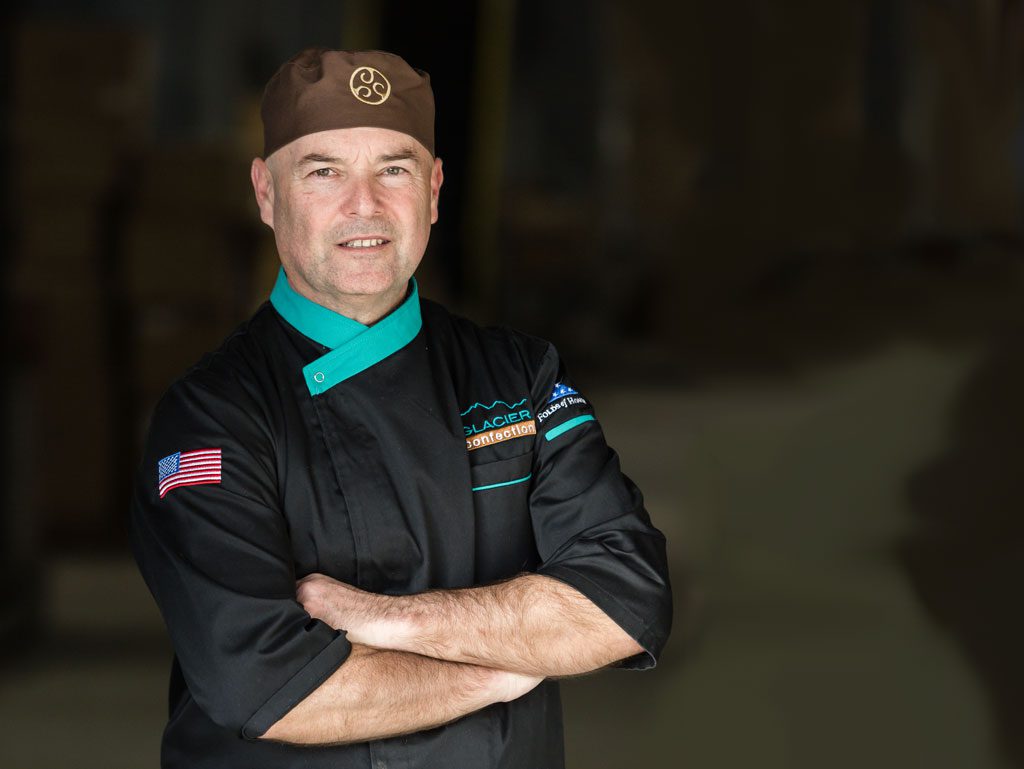
[dropcap]Fine[/dropcap] chocolate and February make a sweet pair. Valentine’s Day is sure to send people searching for the best chocolate in their town.
In Tulsa, a first stop may be Glacier Confection downtown. Founded in 2000 by Bill Copeland, with its first retail store opening in 2010, Glacier produces more than 95 unique truffles.
“We make a watermelon feta chocolate,” Copeland says. “We also make a banana split. We make root beer float. Peanut butter and jelly is a very popular product. We have a birthday cake, which is outstanding. I personally like the caramel macchiato.”
During the Valentine’s Day season, Glacier adds colorful heart-shaped truffles to its lineup, some flavored like peach Bellini and strawberry champagne.
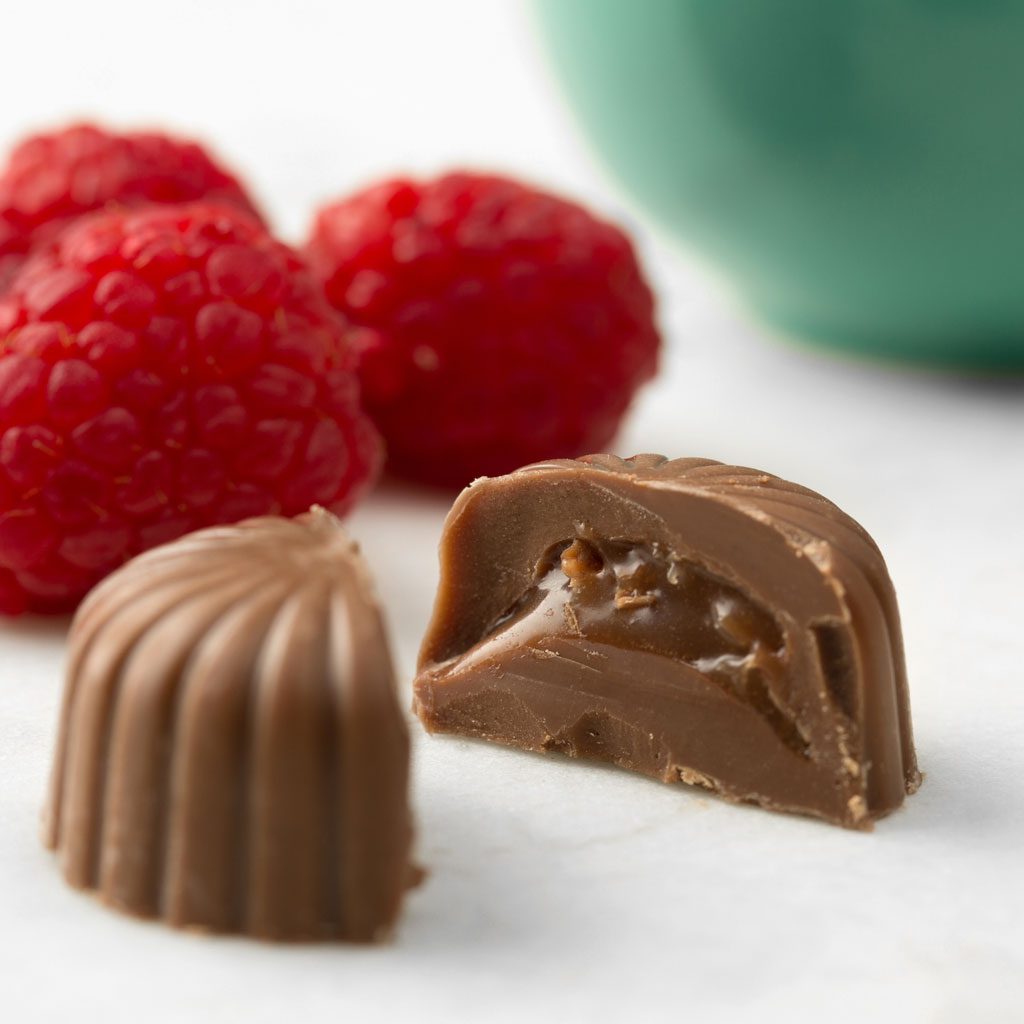

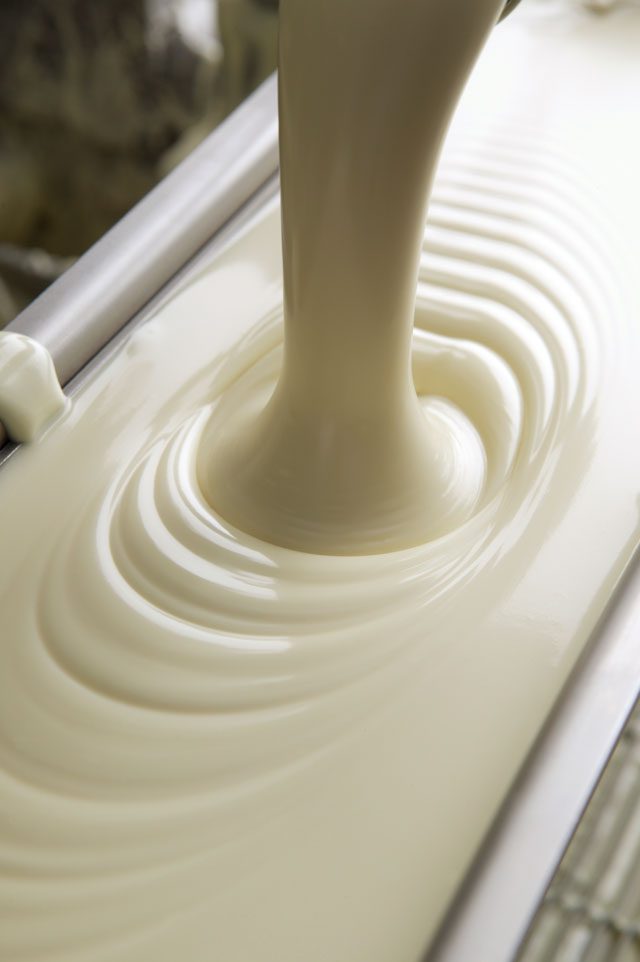
Glacier offers so many options, Copeland says there just are not enough hours in the day to make all its truffles available at the same time.
“It’s about a three-day process whether you are making one or a thousand because you have to wait for that process,” he says. “After you actually hand brush or hand paint the molds to create the color that we do, that has to crystallize. We make a shell. That shell is then cooled and contracted so it gets nice and hard and then we’ll actually make the center into that shell. That’s another whole day, and in some cases two days to crystallize correctly.”
This process is something many people have been asking to see up close, but Copeland says Glacier’s building at Brady Street and Boston Avenue just couldn’t accommodate tours or classes. Glacier’s next step will change that.
“In June 2017, we’re going to be launching a new facility at [215 E. Archer St.] in downtown Tulsa, and that is going to have a full bean-to-bar production facility,” Copeland says. “We’ll be going right from the cacao pod. We’ll be doing roasting, cracking, winnowing and conching to make the chocolate from scratch from the tree. We’ll be doing tours. We’ll be doing classes. We’ll have an educational component finally in place that’s structured. It’s going to have floor-to-ceiling glass walls where you’ll be able to see the entire process. It’s going to be a lot of fun.”
Copeland hopes that at this new location, the company can expand its contributions to veterans as well. Right now, Glacier donates about 10 percent of its proceeds to organizations like the Folds of Honor Foundation. With the added space, Glacier looks to add a training program for recently discharged veterans.
“Hopefully, it will give them an opportunity to work in an environment that is positive,” Copeland says. “Most people are happy coming in and going out of a chocolate shop.”
On the other side of the state, Bedré Fine Chocolate has been growing for four decades.
What began as small chocolate shop in Ada, operating out of a former elementary school, eventually became the nationally known brand that it is today. In 2000, it was purchased by the Chickasaw Nation and moved to Davis, where it now operates.
Kay Colbert worked there when it was a local favorite and learned the ins and outs of the business. Later, she returned to Bedré under the new ownership to serve as general manager.
“Bedré plays an important role in my personal history,” Colbert says.
History also plays a pivotal role in Bedre’s product.
“Native American cultures were some of the first to discover and perfect chocolate’s delicate recipe,” Colbert says. “Today, Bedré Fine Chocolate continues this legacy with expertly crafted Native American chocolate and natural, unique ingredients that pay tribute to our past.”
The word bedré, however, does not come from the Chickasaw language. Instead, it is Norwegian for better. Colbert says this speaks to the vision of the company.
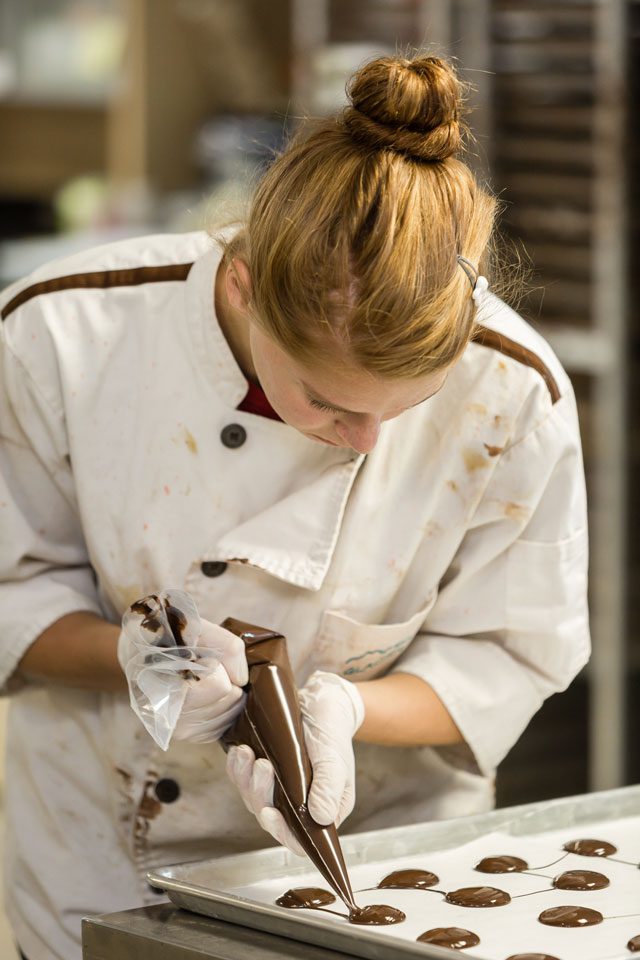
Photo by Chris Humphrey Photographer.
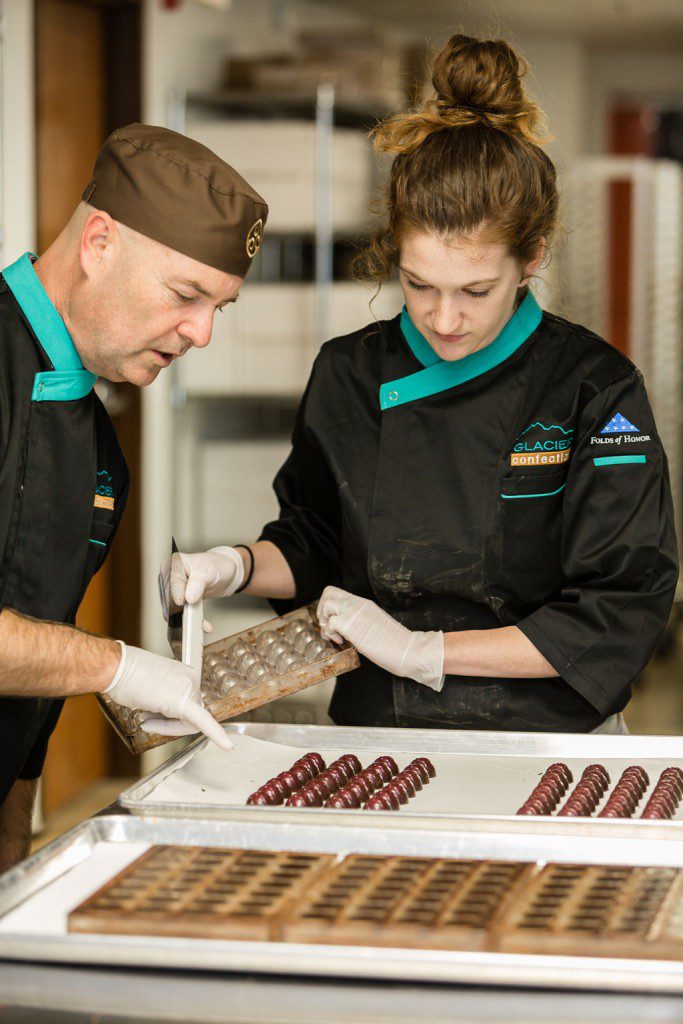
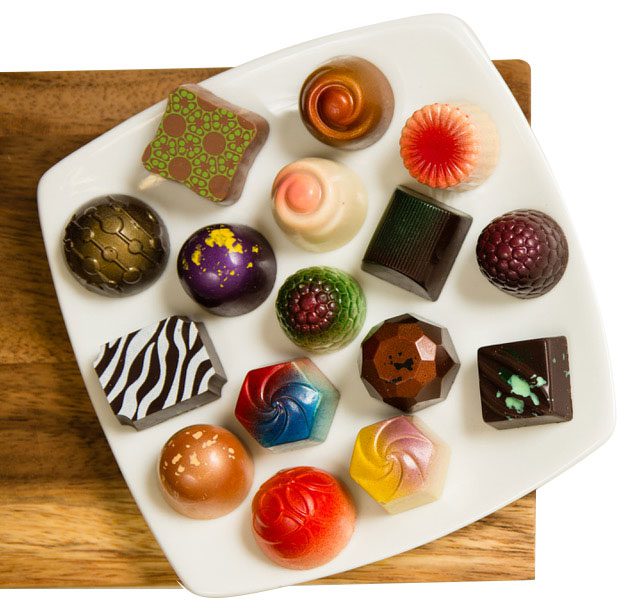
“The recipes are tried and true, offering a soothing and satisfying experience to the most distinguished palate,” she says.
Bedré’s recipes are also diverse. In addition to traditional treats, Colbert says the shop specializes “in a variety of handmade chocolate creations, including White Fudge Twists, which are delectable crunchy corn twists covered in our signature white fudge, and Chocolate Crisps, which are potato crisps enveloped in either milk or dark chocolate.”
Bedré’s products are available in 80 stores across four states, and the chocolates can be shipped worldwide.
“Bedré is also home to Bedré Box, a bi-monthly subscription box featuring a newly created handcrafted chocolate delicacy combined with a selection of Bedré original favorites delivered directly to doorsteps,” Colbert says. “The recent December 2016 Bedré Box marked the first full year of subscribers receiving gourmet chocolate at their doorsteps.”
In 2016, Bedré was awarded the Mark Costello Entrepreneurial Excellence in Oklahoma Award for its positive economic impact in the state.
“Chocolate is something almost everyone loves,” Colbert says. “Being a part of Bedré’s past and seeing Bedré grow into the company it is now, I come in everyday excited to work toward Bedré’s future.”
Bringing Bean-to-Bar to Tulsa
Tulsa will achieve a first this summer when Glacier Confection opens its 7,000-square-foot artisanal chocolate bean-to-bar factory and cafe in a renovated warehouse at 215 E. Archer St.
Bill Copeland says there are fewer than 50 similar factories in the country, and the facility will be the first of its kind in Oklahoma.
Breaking new ground isn’t unusual for Copeland, however. The U.S. Army veteran worked at Eastman Kodak Co. until 1994 before deciding to start a digital imaging business. The business provided visual content for national shows, including Home Improvement, Jeopardy and Ellen. After selling that business, he and Cynthia Calvert began to work together to build other companies – the two later married and now have three children and three grandchildren.
Copeland then turned his love of chocolate into a business, spending 10 years learning from experts and traveling across the globe to see how different chocolate businesses operate. He graduated from the Ecole Chocolat in Vancouver, British Columbia and completed the Master Chocolatier program in Hermitage, France and the Master Program at Barry Callebaut in Belgium.
He and his wife opened the retail store in downtown Tulsa in 2010. After opening a factory space at 11th Street and Sheridan Road, the new facility will return the company to the thriving downtown area – though Copeland didn’t anticipate the rise in businesses when he first opened Glacier.
“We just kind of accidentally ended up in the middle of it,” he says. “I went there because I wanted to be in an eclectic, artistic community. I wanted to be around those kinds of people so we could build a business.”






















